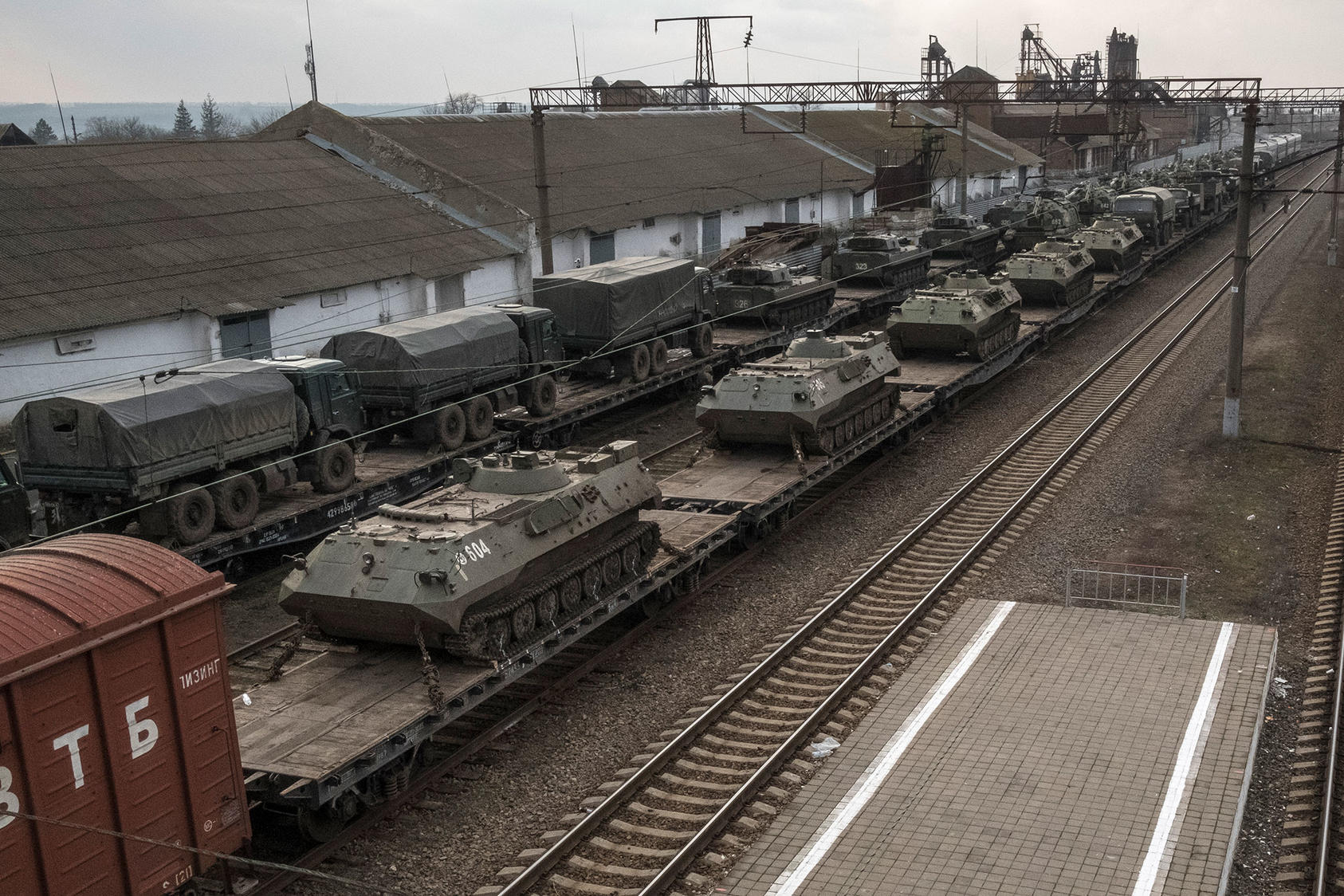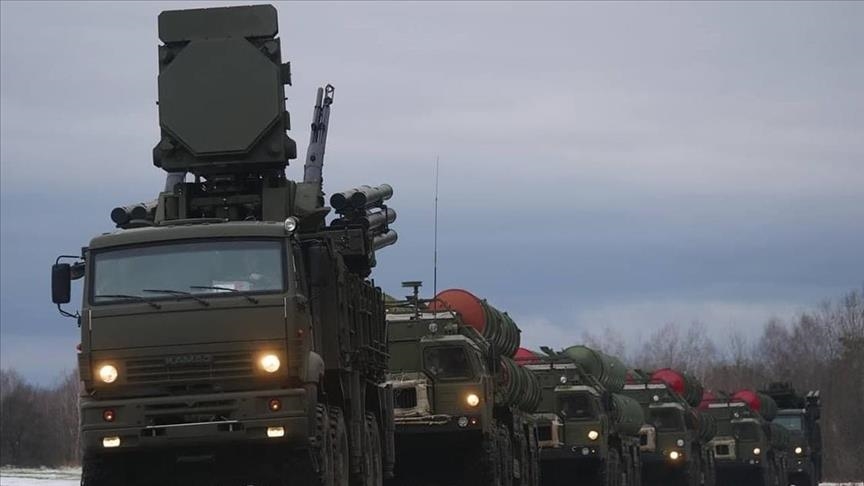•Could the decision to attack Ukraine portend a shift in Moscow’s international decision-making?
By Heather Ashby; Jude Mutah; Andrew Scobell, Ph.D.; Mona Yacoubian
“…In response to more sanctions from the West, Russia could increase arms sales to African countries and use private military companies (PMCs) such as the Wagner Group in places experiencing political instability such as Mali.”
“In the Sahel & West Africa, about 26 million people did not have enough food during the harvest season of October-December 2021. The Ukraine situation would only further deteriorate the situation, leading to rising costs documented to have caused protests & eventual conflict…”
While U.S. defense officials say Russia’s invasion of Ukraine might still be in its initial stages, the reverberating effects of Putin’s “unprovoked and unjustified” assault are already being felt around the world. The United States and its Western allies have moved swiftly to implement forewarned and devastating sanctions on Russia’s economy in an attempt to heighten the cost of war, but the scope and violence of the current incursion has raised concerns about what Russia’s propensity for aggression will be going forward. USIP’s Heather Ashby, Jude Mutah, Andrew Scobell and Mona Yacoubian examine how the invasion of Ukraine might have shifted Moscow’s decision-making in other regions — such as Syria, the Sahel and China.

Armored personnel carriers and military trucks are loaded on train cars outside Taganrog, Russia, Feb. 23, 2022. (The New York Times)
In recent years, Moscow has spent considerable resources rebuilding its military and economic presence throughout Africa. What are Russia’s goals on the continent, and does the invasion of Ukraine raise concerns about possible Russian aggression — whether military or economic — in Africa?
Ashby/Mutah: First, Russia wants to influence African governments to receive favorable trade, security and political relationships that advance Russian private and government interests. As part of the period of strategic competition, Russia aims to project power to undermine the role of the West, especially the United States and France. Notably, Russia is also looking to muscle in on some Chinese influence. China has a substantial economic advantage over Russia in Africa — with its GDP is about seven times that of Russia.
Additionally, arms sales are an essential aspect of Russia’s exports. Currently one of the largest arms suppliers to Africa, Russian arms exports account for nearly half the continent’s imports, more than twice as much as China and the United States.
Lastly, Russia wants to be an indispensable partner in addressing piracy, transnational terrorism and violence from militant groups impacting African countries, particularly in the Sahel. Last year, France announced it was pulling out its military force from the region in 2022, ending its counter-terrorism operations, thus creating a huge vacuum. Then, in late 2021, Russia agreed to send weapons and train peacekeepers to the G5 Sahel — a joint force made up of Burkina Faso, Chad, Mali, Mauritania and Niger.
But in contrast to France and the United States, which have a more active military presence and a more extended history of security partnerships with many African countries, Russia and the private military contractor Wagner Group is not positioned well to engage in a level of military aggression anywhere near the scale of what the Russian military can do in Europe. Russia will likely continue to work bilaterally or multilaterally.
Russia’s economic interests are narrow across Africa, limiting any influence over African economies. However, in response to more sanctions from the West, Russia could increase arms sales to African countries and use private military companies (PMCs) such as the Wagner Group in places experiencing political instability such as Mali.
Moreover, there is significant agricultural trade between Russia and several African countries, including Nigeria, Sudan, Egypt and Kenya. Intensified or prolonged conflict with Ukraine could disrupt trade and hike prices with substantial consequences for food stability in the region. In the Sahel and West Africa, about 26 million people did not have enough food during the harvest season of October to December 2021.The Ukraine situation would only further deteriorate the situation, leading to rising costs documented to have caused protests and eventual conflict, including coups d’états like we saw in Sudan.
Additionally, Russia will likely use influence campaigns to shape narratives around the Ukraine conflict. Through a multi-level campaign of influencers, radio, television and social media, Russia will work to advance its justifications for its attack on Ukraine, which will likely be interwoven with critiques of the West.
How does this move affect conflict dynamics in Syria given Russia’s significant, and often contentious, involvement there?
Yacoubian: Moscow’s invasion of Ukraine could provoke more significant humanitarian, economic and political fallout in Syria. Over the longer term, depending on the scope and trajectory of Russia’s incursion into Ukraine, Moscow’s overarching posture in Syria could diminish, creating both opportunities and dilemmas for other key actors on the ground such as Iran and Turkey.
The conflict in Syria is essentially frozen, with the Assad regime — backed by Russia and Iran — in control of an estimated 70% of Syrian territory and firmly entrenched in power. Having achieved its primary military objective in Syria, Russia has pivoted to a strategy focused on Syria’s political rehabilitation in the region and attracting investment in reconstruction.
Following difficult negotiations with the United States, Russia acquiesced to renewing the sole remaining U.N. border crossing through Bab al-Hawa, providing lifesaving assistance to the nearly 4 million Syrians living in opposition-controlled northwest Syria.
Russia’s Ukraine invasion means that the next renewal of the crossing — set to expire in July 2022 — is now in jeopardy. Russia is more likely to veto renewal given its escalating tensions with the West and the United States in particular. Syria is already in the throes of the worst humanitarian and economic crisis since the start of the conflict more than a decade ago; the humanitarian impact of non-renewal would be catastrophic.
Equally momentous, Moscow is a key supplier of wheat to Syria. With wheat prices skyrocketing following the invasion, the impact on food insecurity will be severe. Syria is already suffering from record levels of food insecurity, and humanitarian workers even raise concerns of famine in Syria.
Finally, Russia’s efforts to build political credibility and entice Gulf investment in Syria are likely to flounder. As Russia gets sucked more deeply into its conflict with Ukraine and its international pariah status grows, its Syria strategy will surely suffer. Key wildcards remain the status of ties with Turkey, Israel and Iran. To date, Russia has managed these complex relationships relatively well. Yet, its largescale invasion of Ukraine threatens to upend these relationships in unpredictable ways.
With concerns swirling over the possibility of an alliance forming between Moscow and Beijing, what does the invasion of Ukraine mean for the future of the Russia-China partnership — and how could it affect strategic competition with the United States and other Western powers?
Scobell: China has been very quiet about Russian actions vis-à-vis Ukraine. Beijing does not want to associate itself with Moscow’s actions but at the same time does not want to create friction in China-Russia relations.
It is likely the issue of Ukraine came up in in early February during discussions between President Vladimir Putin and President Xi Jinping, when the former visited China on the eve of the Beijing Winter Olympics. While we don’t know what was said behind closed doors, one can speculate that Xi politely requested that Putin not to engage in any provocations until the Olympics had concluded. What we do know is that there was no mention of Ukraine in the publicly released joint statement of February 4 and that Russia waited until after the Olympics before launching full-throated military action against its neighbor.
While China and Russia have what the two countries call a “Comprehensive Strategic Partnership of Coordination,” both Moscow and Beijing insist their bilateral relationship is not a military alliance. In other words, neither country is committed to come to the defense of the other in the event one is attacked or support the other if it conducts an offensive military operation. Thus, Beijing perceives no sense of obligation to support Moscow on Ukraine — whether it be rhetorically or otherwise.
While Russia also perceives no obligation to support any Chinese military action, Moscow is on record as supporting Beijing’s stance on Taiwan, most recently in the February 4 joint statement: “The Russian side reaffirms its support for the one-China principle, confirms that Taiwan is an inalienable part of China, and opposes any form of independence by Taiwan.”
Yet, Russia has stopped short of explicitly voicing support for Chinese military action against Taiwan. Indeed, Putin went on record in October 2021 saying that he didn’t think China needed “to use force” against Taiwan.
Credit | USIP

